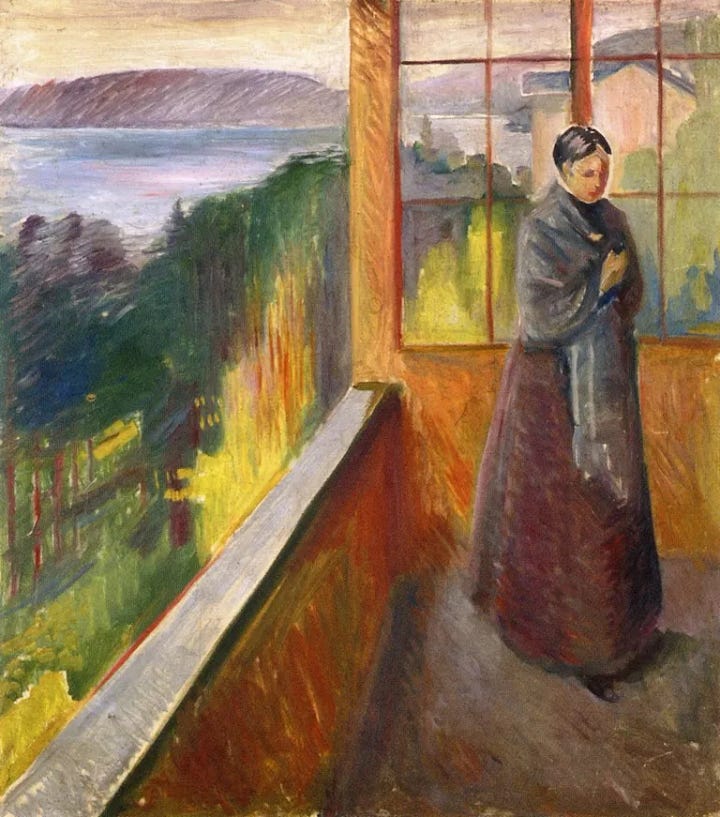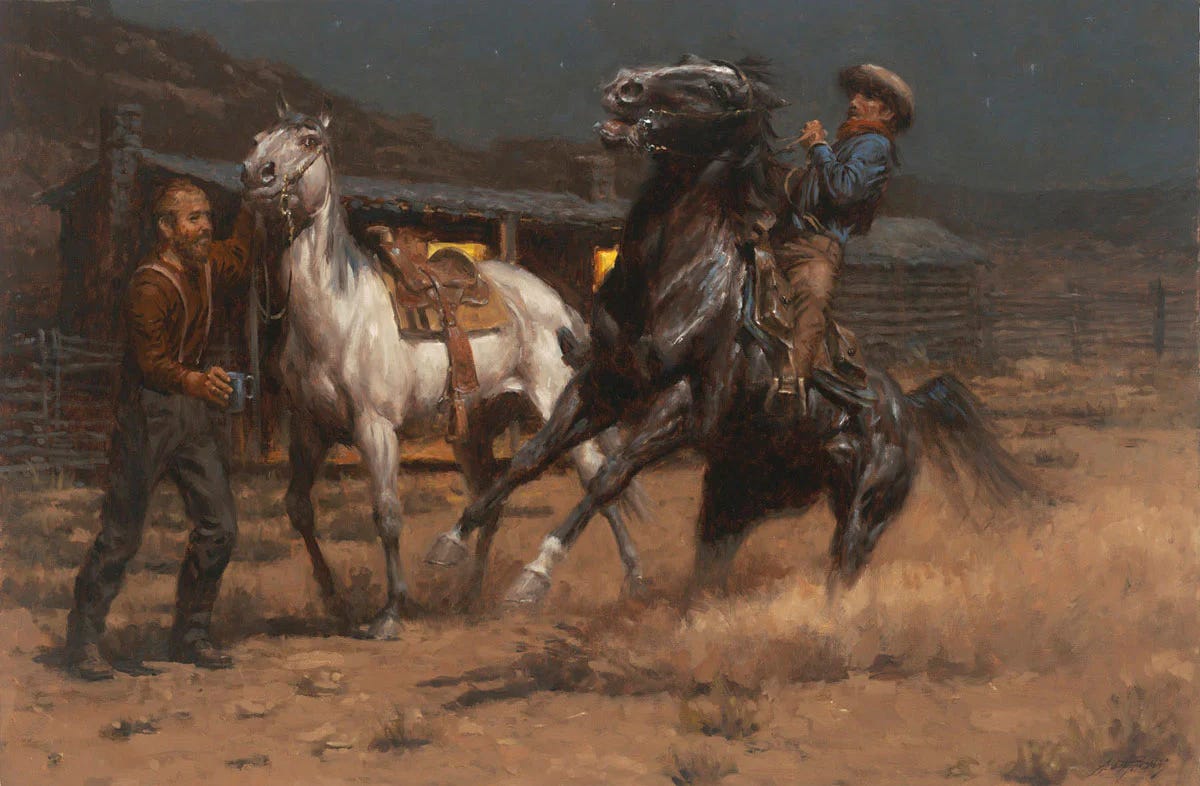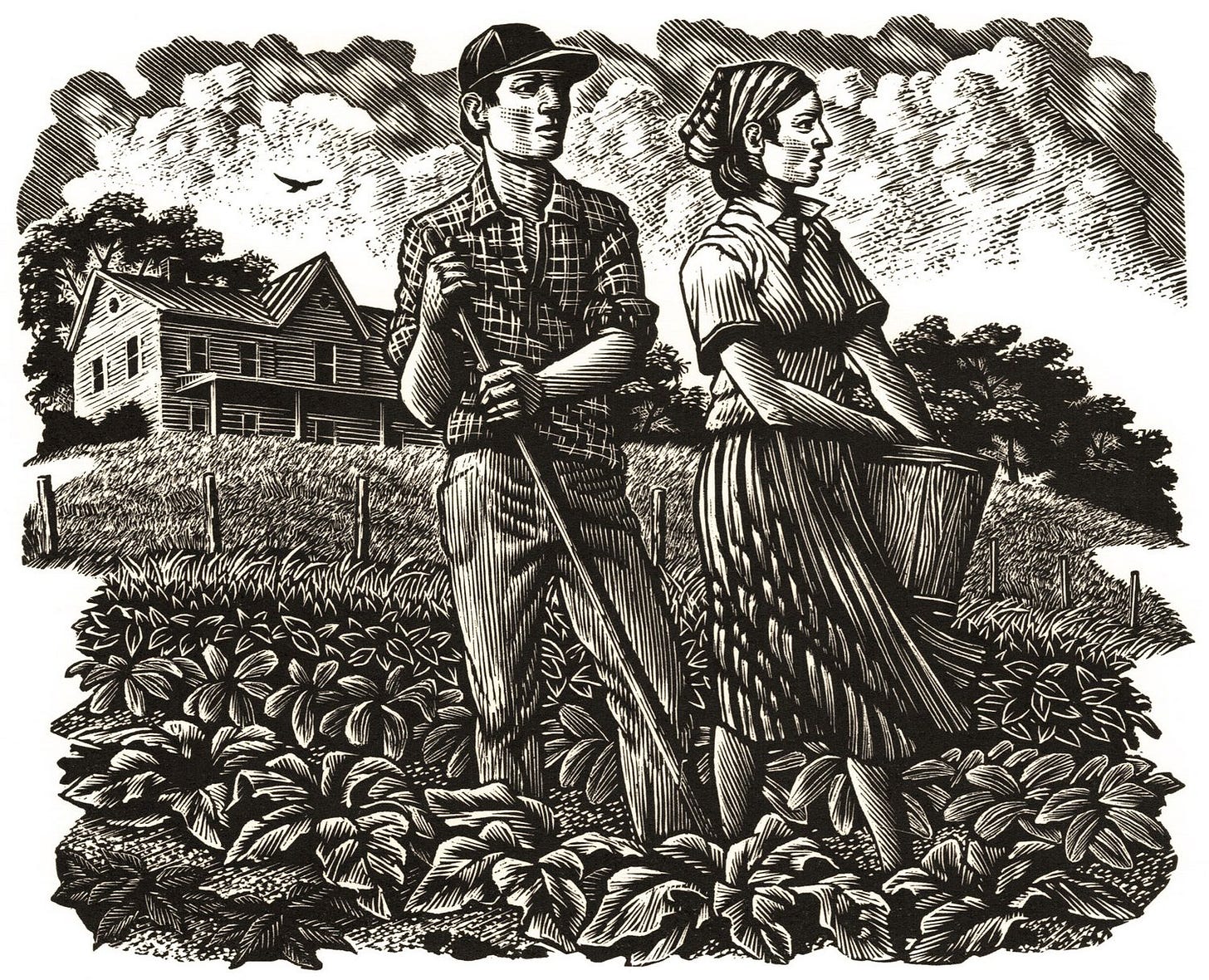In the spirit of this Substack’s namesake, the Pony Express, I’ve decided to start “Monthly Deliveries.” These posts will be like a giant sack of letters that’s finally made it’s way to you through the Wild West. It might contain novel recommendations, a thought-provoking poem, a podcast, a painting, a personal note—who knows!
General Assortment
I finished reading Cormac McCarthy’s The Crossing—the second book in the Border Trilogy—the other say. I’d highly recommend both All The Pretty Horses and The Crossing, and I’ll read the final one first before I recommend it. McCarthy just has a way of writing that makes it seem like nothing happening, and just when you might be thinking about closing the book, a blind Mexican will walk in and start into a treatise on the nature of evil and God for another twenty pages. In a lot of ways, it seems like that might’ve been what the Wild West was like; the mundane mired in the cosmic reality—I mean you find both Death Valley and the Tetons out there. The lone cowboy leading his cattle from pasture to pasture in the shadow of impossibly towering mountains. Maybe that’s what all of life is like?
Another fun discovery has been The Gnostalgia Podcast, specifically their first episode on Sacred Ecology. Hosts Sebastien Morello and Brian Scarffe mix esotericism, philosophy, theology, and mysticism into discussions on the liturgical relationship between humanity, nature, and God. While their podcast might require one to use an encyclopedia, it’s still well worth a listen. In the episode on Sacred Ecology, they discussed man’s stewardship of the natural world through farming, hunting, and foresting. Through properly practicing these arts, Christian’s are able to catch glimpses into the sacramental and liturgical world that exists all around us.
There aren’t many TV recommendations I would make, but my wife and I just finished watching Season 11 of Alone, and it was fantastic. The History Channel’s Alone does a great job of capturing a true survival scenario. None of this camera in the bushes nonsense, just a guy or gal in the wilderness trying to survive the longest. The contestants are especially good this season too!
I took a family trip to Highlands/Cashiers/Clayton area of N. Georgia and S. North Carolina this past month, and I discovered a wonderful book: Roots to the Earth. With poems by Wendell Berry and magical wood engravings by Wesley Bates, this hardcover book is perfect for young and old readers. Berry’s poems offer thoughtful meditations of family, home, and work, and Bates’ wood engravings capture the rugged and dignified nature of the simple, Agrarian life. To be honest, what caught my attention in the bookstore were the engravings. The black and white contrast, the details in the grass and tools, the noble look in the eyes of the characters, Bates captures honest sensibilities with such craft and respect. I’d encourage others to check his work out here.
Substack Special
writes about the Middle Ages in Via Mediavalis. He makes the case that the Medieval period is one of great knowledge and human experience, instead of a “Dark Age” of barbarism and backwards thinking. He expounds on both the scholastic movements as well as the plight of the every day peasants, and through each he shows how enmeshed the people of Medieval Europe were in both the temporal and the Divine realms. He recently wrote about the importance of symbolism in the middle ages.For a while now, one of my favorite Substacks has been Art Every Day by
. His most recent post on the “other” works of Edvard Munch stood out in particular. George does a fantastic job of combining storytelling, history, and artwork in short. Here are two of my favorites from Munch.

I also read a short piece by
that I quite enjoyed called The Illusion of the Ordinary: Recognizing the Stars in Human Form. He includes several references from Scripture and literature that discuss the stars as more than “just” stars. Creation, which we interact with every day, might just be more than what it seems. I especially love this quote from Ramandu in The Voyage of the Dawn Treader: “Even in your world, my son, that is not what a star is but only what it is made of.”Randomly, I came across
’s post The Shearing Shed. Not only does he tell the story of his time working at a ranch in the Patagonia Mountains, but he’s also a talented photographer with an eye for finding the extraordinary in the ordinary. and run The Ha’penny Papers Substack and The Rialto Book Review, which are all housed in the Song of the Broad-Axe Publications. If you’re looking to submit poetry or fiction, I recommend checking them out. frequently publish stories and poems in their print journal, but on their Substack, Alexandra has been translating the poem “Demon” by Mikhail Lermontov from Russian. Here’s a link to the latest instalment of the poem.Latest from the Music Halls
I’d recommend taking a peak at Nathan Jacques’ new album Dark Wanderer and the Bounty Heart:
And Tim Hill’s album Payador:
Both have strong Western influences, and for the first Pony Express delivery, it felt appropriate.
Until next!






What a coincidence, I've just finished McCarthy's 'The Crossing' as well, and agree with your review. Looking forward to 'Cities of the Plain' sometime soon!
I love this passage from 'The Crossing' and thought you probably also would have liked it:
"He heard the voice of the Deity in the murmur of the wind in the trees. Even the stones were sacred. He was a reasonable man and he believed that there was love in his heart. There was not. Nor does God whisper through the trees. His voice is not to be mistaken. When men hear it they fall to their knees and their souls are riven and they cry out to Him and there is no fear in them but only that wildness of heart that springs from such longing and they cry out to stay his presence for they know at once that while godless men may live well enough in their exile those to whom He has spoken can contemplate no life without Him but only darkness and despair....
To see God everywhere is to see Him nowhere. We go from day to day, one day much like the next, and then on a certain day all unannounced we come upon a man or we see this man who is perhaps already known to us and is a man like all men but who makes a certain gesture of himself that is like the piling of one’s goods upon an altar and in this gesture we recognize that which is buried in our hearts and is never truly lost to us nor ever can be and it is this moment, you see. This same moment. It is this which we long for and are afraid to seek and which alone can save us."
Have you read much else by McCarthy? I've only read The Road, which was as fantastic as I had always been led to believe.